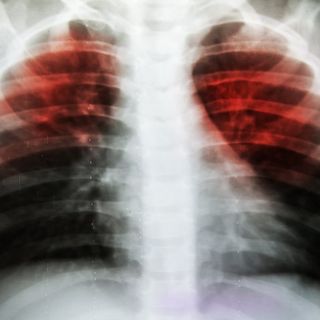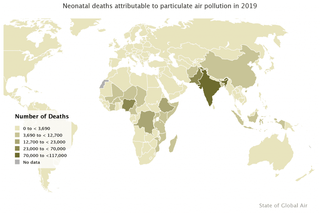Around 1.16 lakh infants in India died due to air pollution exposure in 2019, the most of any other country in the world, according to the State of Global Air 2020 report, published by the Health Effects Institute. Air pollution is linked to low birth weight and pre-term birth, which are the leading risk factors for death within the first month of life, according to the report.
Overall, 16.8 lakh individuals died in India because of long-term exposure to outdoor and household air pollution. The causes of death included heart attacks, strokes, diabetes, lung cancer, chronic lung disease, and neonatal diseases.
Scientists caution that indoor pollution is particularly dangerous. “Although there has been a slow and steady reduction in household reliance on poor-quality fuels, the air pollution from these fuels continues to be a key factor in the deaths of these youngest infants,” Dan Greenbaum, president of Health Effects Institute, said in a statement. Beate Ritz, a professor of epidemiology at the University of California, Los Angeles, compared India’s indoor pollution to that of Victorian London while speaking to The Guardian. She said, “This is not the air pollution we see in modern cities [in the rich world] but that which we had 150 years ago in London and other places, where there were coal fires indoors. Indoor air pollution has not been at the forefront for policymakers, but it should be.”
Source: State of Global Air 2020 Report
Related on The Swaddle:
Air Pollution Linked to Depression, Suicide in Global Study
Babies born too small and/or too early are susceptible to a variety of health problems including inflammation, diarrhea, and blood, brain, and respiratory disorders, according to the report. Even if these infants survive infancy, they will live with an increased risk for infectious and chronic diseases. With respect to pre-delivery risk factors, pregnant women in countries with low levels of sociodemographic development are more likely to birth infants pre-term/with low birth weight. This is because, among other reasons, they are likely to have higher exposure to air pollution, and subsequently, adverse birth outcomes. India’s underlying prevalence of low birth weight also makes this risk far more pronounced, according to what Kalpana Balakrishnan, the director of the Indian Council of Medical Research (ICMR)’s Centre for Advanced Research on Air Quality, Climate, and Health, told the Hindustan Times.
“While the biological reasons for the linkage between air pollution and adverse birth outcomes are not fully known, it is thought that air pollution may affect a pregnant woman, her developing fetus, or both in ways analogous to tobacco smoking, which is a well-known risk factor for low birth weight and preterm birth,” says a statement from the report authors. Katherine Walker, principal scientist at the Health Effects Institute, told The Guardian, “There is an epidemiological link, shown across multiple countries in multiple studies. … there is something going on [with air pollution] that is causing reductions in baby growth and ultimately birth weight.”





